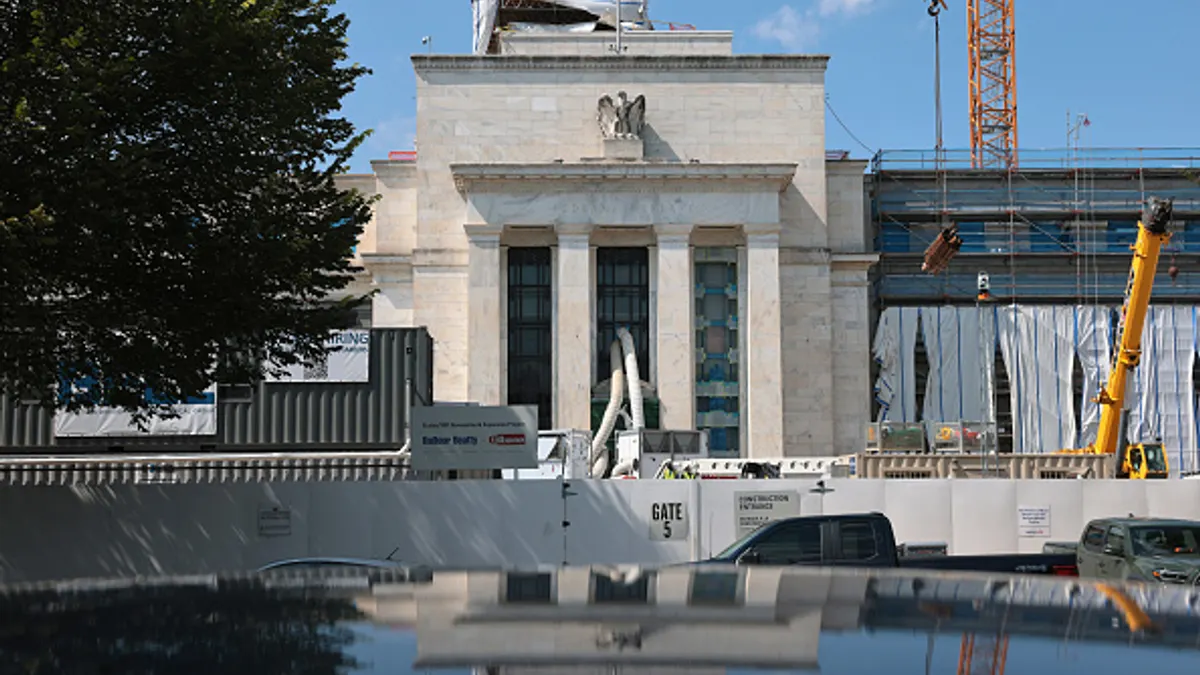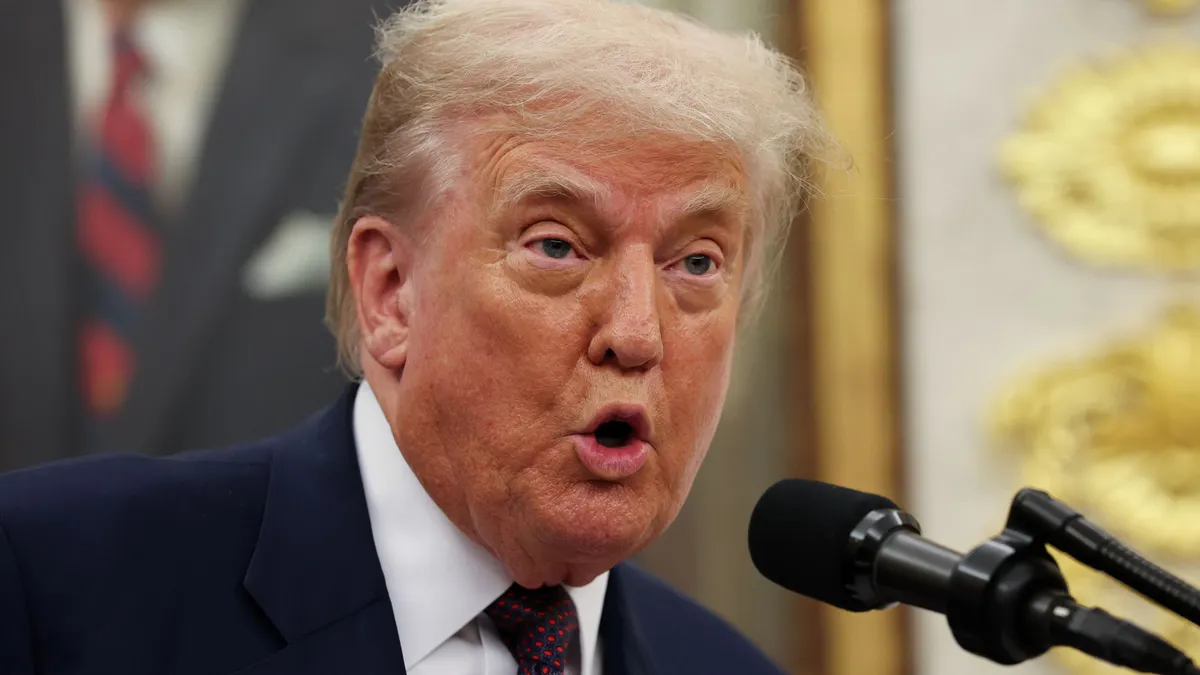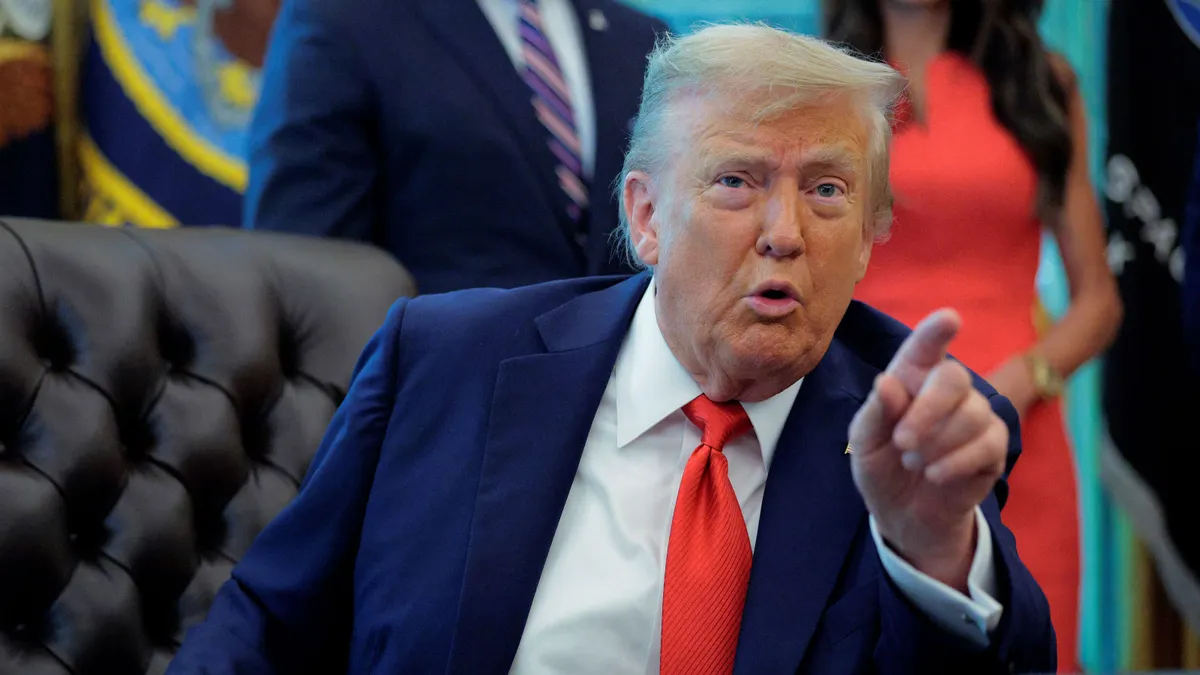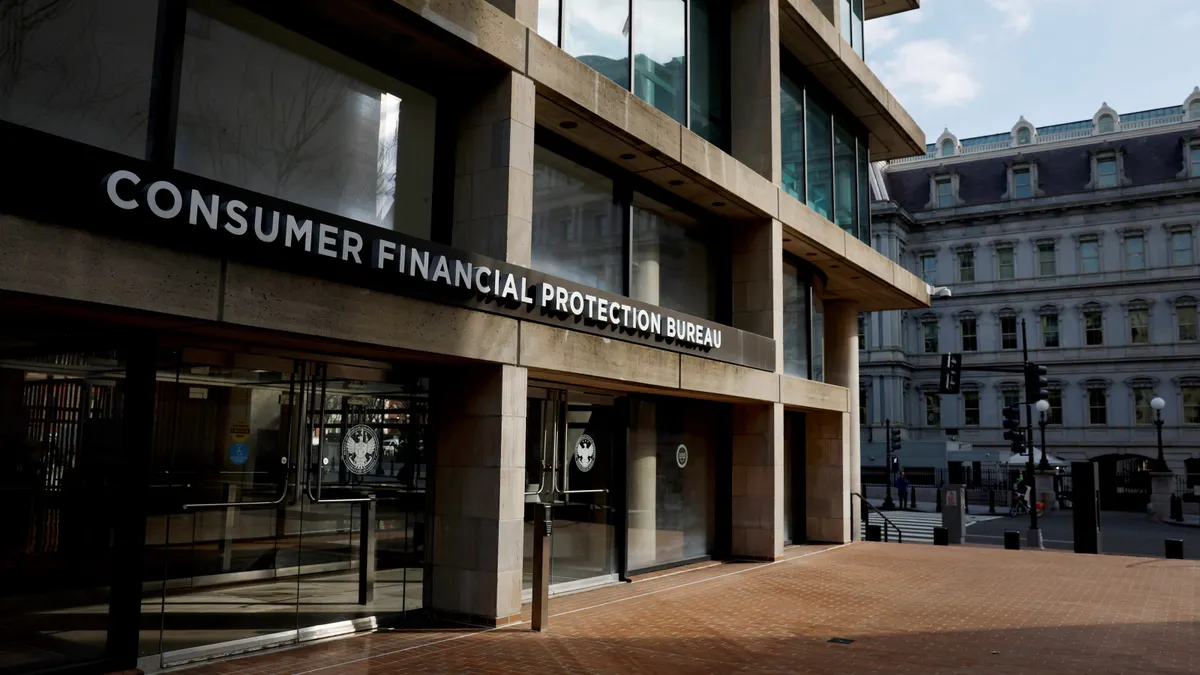President Donald Trump said Thursday he will nominate Stephen Miran, the chair of the Council of Economic Advisers, to the Federal Reserve Board of Governors seat that Adriana Kugler is vacating.
“In the meantime, we will continue to search for a permanent replacement,” Trump wrote Thursday in a post on Truth Social.
This appointment adds a voice to the Federal Open Market Committee supporting interest rate cuts and gives Trump more time to finalize his decision on who will replace Jerome Powell as Fed chair.
Miran would serve only through the end of January, completing Kugler’s term. But even that is subject to Senate confirmation. The Senate is set to reconvene Sept. 2, and it would appear unlikely that Miran would be confirmed before the FOMC next votes to set the interest rate level Sept. 16 and 17.
In a statement Thursday, Senate Banking Committee Chair Tim Scott, R-SC, called Miran “instrumental in advising on economic policy and advancing a pro-growth agenda” during his time as CEA chair.
Meanwhile, the committee’s ranking member, Sen. Elizabeth Warren, D-MA, expressed concerns about Miran's political ties, calling him a “Trump loyalist.”
“I will have tough questions for him during his confirmation hearing about whether he'd serve the American people as an independent voice at the Fed or merely serve Donald Trump," Warren said.
Interest rates
Trump has relentlessly criticized Powell over his reluctance to lower interest rates. On that issue, Miran would count himself a hawk.
“The doves are cavalier about inflation and have been the entire time. They think … 3% [inflation] is no big deal,” Miran wrote last year on X. “I think that undermines our democracy, the rule of law, and our institutions given Congress legislated ‘stable prices.’ ”
The Fed holds a dual mandate from Congress to maintain maximum employment and price stability. The latter carries with it an official target of 2% inflation. The interest rate now sits between 4.25% and 4.5%. Trump has said he would like to see the interest rate reduced by 3 percentage points. After Trump announced Miran as his short-term Fed nominee, JPMorgan said it now expects a quarter-point rate cut at the September FOMC meeting, according to Reuters.
Miran has argued that keeping interest rates high for too long could lead to persistent inflation across the economy.
“A little temporary economic weakness is a small price to pay for a permanent reduction in inflation,” he wrote last year, according to The Wall Street Journal. “Economic weakness brought about by a high policy rate can be easily and swiftly reversed by a lower policy rate, in contrast to a balance sheet recession brought on [by] a massive asset bubble collapse.”
Along with now-Treasury Secretary Scott Bessent, Miran held a central role in crafting the Mar-a-Lago Accord, a blueprint to devalue the dollar to better manage the U.S.’s trade deficit. The plan would make American imports more competitive and boost domestic manufacturing through tariffs, trade agreements – and a goal to keep the dollar as the world’s reserve currency.
“Overall, we don’t expect significant inflation from the tariffs,” he told Bloomberg on Thursday. Tariff-driven inflation “would be a one-time price-level shift, not an enduring trend,” Miran said.
In that sense, he’d align with Fed Gov. Christopher Waller and Vice Chair for Supervision Michelle Bowman, who dissented with last week’s interest-rate decision, calling the tariffs’ impact a “one-time effect.”
Indeed, Miran praised Waller on Thursday for avoiding "tariff derangement syndrome," according to Reuters.
Fed views
Perhaps more controversial, though, are some of Miran’s views on the Fed. Miran last year wrote a 24-page proposal – along with Dan Katz, who is chief of staff at the Treasury Department – accusing the Fed of “groupthink that has led to significant monetary-policy errors while allowing the Fed the flexibility to unwisely expand its remit into inherently political areas such as credit rationing and banking regulation.”
Miran and Katz proposed limiting the Fed to a monetary policy focus and prohibiting Fed governors from serving in the executive branch for four years after the end of their term.
“Short-circuiting the revolving door between the Fed and the executive branch is critical to reducing the incentives for officials to act in the short-term political interests of the president,” they wrote.
Meanwhile, Miran and Katz argued for shorter terms for Fed governors and greater White House greater control to dismiss central bank appointees, “clarifying that members serve at the will of the U.S. president.”
They also suggested subjecting the Fed’s funding to congressional appropriations
“In practice, central bank independence is intended to allow the pursuit of long-term goals despite short-term political vicissitudes, but it can also bestow power without accountability,” Miran and Katz wrote.
Analyst reaction
Before joining the second Trump administration, Miran served as a senior strategist for Hudson Bay Capital Management and as a fellow at the Manhattan Institute. He did, however, work as a senior adviser on economic policy at the Treasury Department during Trump’s first term, according to LinkedIn. He played a key role in developing the Paycheck Protection Program, CNBC reported.
Miran has been a vocal critic of Powell – particularly, of actions immediately post-COVID.
“Powell was wrong politically and economically when he urged Congress to ‘go big’ on fiscal stimulus in October of 2020,” Miran wrote on social media last September. “We know what happened next.”
David Beckworth, a senior research fellow at the Mercatus Center at George Mason University, said Miran, if confirmed, is “just one member [of the FOMC] and he’s not going to go in and bring structural change or lead to larger rate cuts.”
“In just a few meetings, it’s not going to undermine Fed independence,” Beckworth said, according to Bloomberg.
Miran’s selection, though, puts to rest the persistent speculation, since Kugler resigned, that Trump would opt now to nominate his eventual pick to replace Powell, whose term as chair expires in May.
Over the past week, prediction markets have swung from highlighting former Fed Gov. Kevin Warsh or National Economic Council Director Kevin Hassett as front-runners to succeed Powell – to bestowing Waller with that status.
“By selecting Miran, Trump has made a stop-gap appointment and given himself until January to make the main call,” Marco Casiraghi, senior economist and strategist at Evercore ISI, said in a note. “This way Trump did not tie his hands, keeping his options open regarding the choice of the new Fed governor and especially the new Fed chair.”
Casiraghi added that the pick bodes well particularly for Waller, “whose chances to become chair would have diminished significantly had Trump given Kugler’s replacement a permanent and stronger endorsement for the future.”
Derek Tang, an analyst at LHMeyer, said the Miran pick gives Trump “the best of both worlds: immediate policy influence without surrendering Fed Chair optionality and leverage.”
"Disruption from within is a bonus,” Tang wrote in a note seen by Reuters.





















